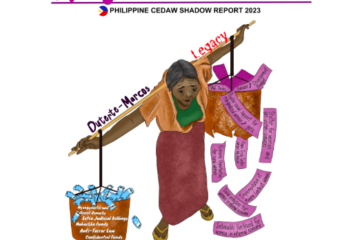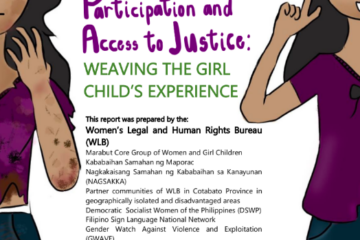Gender and Internet Governance Exchange (gigX). Gigx was a two-day workshop held from June 29-30 at the Macau Productivity and Technology Center (CPTTM) designed for women and internet activists to gain a better understanding of internet governance (IG) and a way to prepare women to engage in the different IG spaces, including the regional and global IGFs. Organised by the Association for Progressive Communications (APC) in cooperation with the Foundation for Media Alternatives (FMA), the exchange brought together women from the Philippines, Bangladesh, Thailand, Indonesia, Pakistan and Malaysia to learn and exchange topics on gender issues.
Topics discussed during the gigX included introduction to what IG is all about, its history and the stakeholders involved; what is the internet; feminist principles of the internet (FPI) that focused on the following clusters: access, economy, expression, participation & social movements, agency, consent and autonomy. Learning and understanding all these topics were achieved through presentations, discussions and activities.
On day two of the exchange, I did a presentation on the issue of violence against women, focusing on acts of gender based violence that are committed exacerbated, abetted through the use of technology, as well as the myths surrounding technology-based violence against women which are the reasons why women struggle to access justice. Other gigX participants also presented the work that they are doing in relation to the FPI clusters.
Two days was not enough to get a full understanding of internet governance and discuss all the issues that are often discussed in relation to it. However, the exchange was a way to orient the participants on what IG is all about, and how women’s rights and gender issues come into the discussion. Gigx was a good way to help prepare the women participants to engage in IG spaces. I shared with the gigx participants how fortunate they were to have such an orientation. The first time I attended an IGF, which was in Bali in 2013, I had very little idea of what goes on in such a space. I did not have the orientation they had, and the group debriefings each day which helped process the ideas discussed in the different sessions attended. I really think that the gigx is useful and is something that can be replicated including at the local level.
This is the first gigX organised by APC. Similar exchanges will also be conducted in Latin America and the Carribean, and Africa prior to their regional IGFs.
Asia Pacific regional Internet Governance Forum (APrIGF). The APrIGF serves a platform for discussion, exchange and collaboration for the advancement of internet governance development in the Asia Pacific region. Its structure is similar to that of the global IGF, where workshops proposed by different groups from the region form part of the program and agenda.
Immediately after gigx, its participants were able to put into practice what they learned about IG and IGF by attending the APrIGF which was held at the Macau University of Science and Technology from July 1-3, 2015. For
most of the participants (except for myself and another colleague at FMA), it is their first time to attend the APrIGF.
One of the first three simultaneous workshops held prior to the opening plenary was the one on bridging the gender digital divide throug mobile internet. I was one  of the speakers in this session where I talked about women and mobile internet in the Philippines, and shared with those who attended the session the ongoing survey that FMA is doing, as part of the 10-country research that the Worldwide Web Foundation is conducting. The session was organised by the Internet Society.
of the speakers in this session where I talked about women and mobile internet in the Philippines, and shared with those who attended the session the ongoing survey that FMA is doing, as part of the 10-country research that the Worldwide Web Foundation is conducting. The session was organised by the Internet Society.
FMA also organised a session on Human Rights and Governance in ASEAN Cyberspace, which discussed the 2015 ASEAN ICT Masterplan and what it entails and the opportunities for ASEAN economies. I facilitated the said session that had as main speakers Duangthip Chomprang of the Internt Society and Jac sm Kee of the APC. Reactors to the session are Arthit Suriyawongkul of Thai Netizen Network, Nica Dumlao of FMA and Lih Shiun Goh of Google. This was on day 2 of the APrIGF.
This is the second time I am attending the regional IGF, the first time being the one held in India in 2014. I am glad to note that compared to last year, there are more civil society representatives present in this IGF. There are also many women participants this year, who did not just attend but presented and spoke in the different sessions and made their mark. Of course, there were still more representatives from the technical community present in this space, and majority of the resource persons were men.
Gigx participants were encouraged to be active on social media – to blog, post and tweet comments about the sessions and activities they took part in, whether it be gigX or the regional IGF. Blogs of gigx participants will be published in genderIT.org. We also did a gender report card, where we looked at the ratio of men and women in the different sessions, whether as resource persons or participants.
Another interesting development in this year’s APrIGF is having an outcomes document. The aim of this, according to the organisers, is “to document items of common interest relevant to IG in the Asia Pacific region.” The idea raised several questions, including the process of coming up with such a document. In the end though, a rough consensus was reached to move forward with the document, form a drafting team to steer its development, and to open it for comments of a wider group.
Participation in the two events also paved the way for me to meet new organisations and partners. We had discussions with Google, ICANN, the Internet Society, Citizen Lab, Access, and GSMA, to name a few. We also met with Mr. Forest Atkinson of the State department/American Institute in Taiwan. On July 1 after the APrIGF sessions, NGO representatives from Asia met to update each other on our activities and see how we can collaborate in the future. It was also good to see a representative from the Philippine government present at the APrIGF.
I am grateful to Freedom House for the opportunity to be part of these two events and share my knowledge on certain issues. Last year, Freedom House also sponsored my participation at the global IGF held in Istanbul, Turkey. Kudos, of course, goes to APC for organising the event.
In the future, FMA will continue its active engagement at the the regional IGF and other similar spaces in order to bring about our own issues as a nation and as a region, to share and learn with other participants on how we can improve on internet governance, not forgetting the centrality of human rights in the discussions. We also hope to encourage more individuals and groups, especially those from the grassroots to be part of similar spaces, so that they can participate and have their voices heard and included in the discussions, in the crafting of policies, in the overall internet governance development. #
![]()



0 Comments